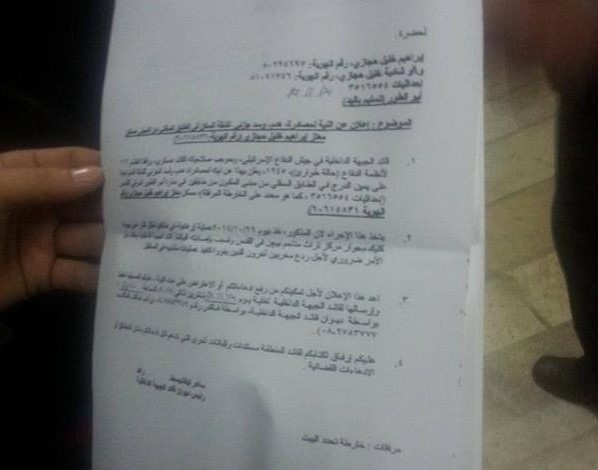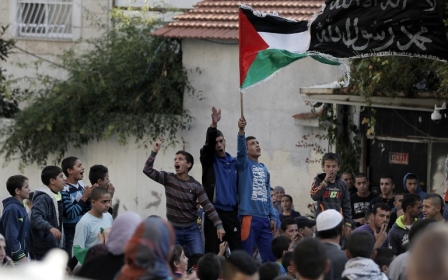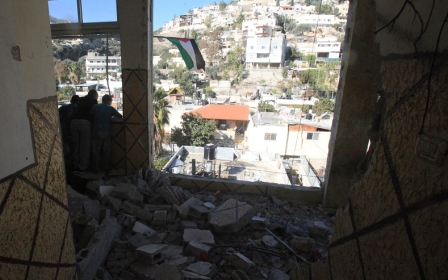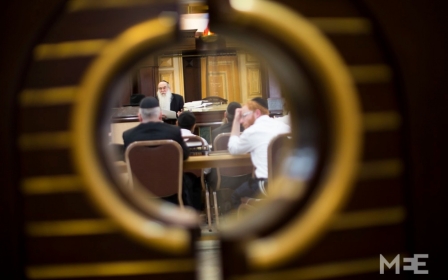More demolitions planned for Jerusalem as army mulls increased security
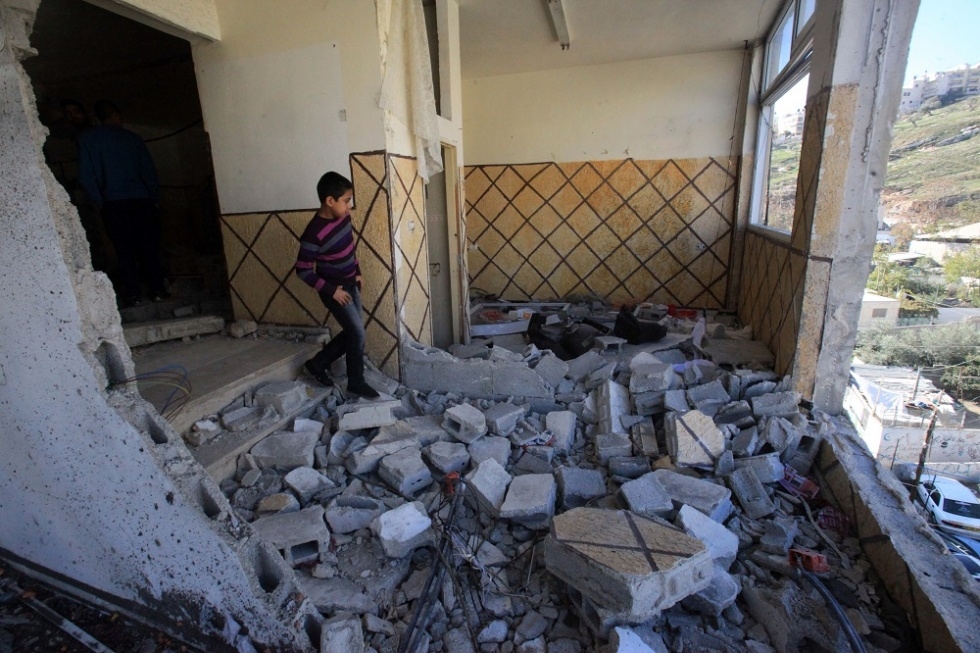
Israeli security authorities have issued orders for the demolition of the homes of two Palestinians who killed five worshippers at a Jerusalem synagogue this week.
The order for the demolition of the family homes of Ghassan and Odai Abu Jamal follows orders on Wednesday for the demolition of the homes of three other Palestinians accused of carrying out a recent spate of attacks in Jerusalem.
Each of the families were given 48 hours to vacate their homes ahead of the demolition, but at least one family has vowed to appeal the order.
Relatives of Mu'taz Hijazi, the Palestinian man who attempted to assassinate right-wing activist Yehuda Glick on 29 October, received news on Wednesday night that their ground-floor flat is due for demolition.
Neighbours helped the family clear their belongings from the property, reports Palestinian news site Deyar 48.
Hijazi's family reject insist that their relative was not responsible for shooting Glick, who was left in a critical condition after the assassination attempt.
Israel urged to comply with international law
The move comes less than a day after authorities razed the home of another Palestinian, Abd al-Rahman al-Shaludi, from Silwan in East Jerusalem.
Shaludi ran his car into a crowd of pedestrians waiting for a light railway in East Jerusalem on 22 October, killing two people including a three-month-old baby.
He was shot dead at the scene by Israeli police.
Israel said the event was a pre-meditated terrorist attack, although the man's family continue to insist that he lost control of the vehicle.
The families of those accused have largely denied knowing about the apparent‘lone wolf’ attacks - however, Hamas as well as many ordinary Palestinians have endorsed the attacks, deeming them a "natural response" to the longstanding history of discrimination and poverty experienced by many Palestinians.
Following the demolition of her home, Shaludi's mother told Ma'an that "the Israeli occupation wants to break up our family and displace us. They think that by demolishing the houses of martyrs they will deter the people of Jerusalem and Palestine, but violence begets violence."
Israeli authorities have vowed to get tough on the families of attackers, with Prime Minister Benjamin Netanyahu on Tuesday vowing a harsh response to the latest and bloodiest attack in which two Palestinians killed four rabbis and a policeman in a synagogue in West Jerusalem.
"I have ordered the destruction of the homes of the Palestinians who carried out this massacre and to speed up the demolitions of those who carried out previous attacks," Netanyahu said late Tuesday.
Rights groups, however, have lashed out at the prospect of stepping-up demolitions and other measures, which are seen as a form of “collective punishment."
Israeli rights group B'Tselem said that punitive house demolitions were "fundamentally wrong" and contravene "basic moral standards by punishing people for the misdeeds of others."
The UN Security Council late on Wednesday firmly denounced Tuesday’s “despicable terrorist attack" but urged restraint.
In a reference, apparently directed at Israel over possible reprisals, the council "reminded states that they must ensure that measures taken to combat terrorism comply with all their obligations under international law."
Some Israeli residents also voiced aprehension about the demolitions.
Yoan Ari Dudkevitch, a witness to Tuesday’s killings in West Jerusalem, told MEE contributor Oren Ziv that he does not believe destroying homes is an effective strategy.
“These actions are more to help show that the government is taking action – they are not really helping the Israeli public to feel safer," Dudkevitch said.
Netanyahu advised against deploying troops in Jerusalem
Yoan Ari Dudkevitch, a witness to Tuesday’s killings in West Jerusalem, told MEE contributor Oren Ziv that he does not believe destroying homes is an effective strategy.
“These actions are more to help show that the government is taking action – they are not really helping the Israeli public to feel safer," Dudkevitch said.
- See more at: http://www.middleeasteye.net/news/jerusalem-760472337#sthash.bRPZ2xLg.dpufWhile a heavy police presence remained visible throughout the city early on Thursday, no large-scale clashes have broken out.
The relative calm came despite reports that the body of an unknown Palestinian man was discovered in a Jewish cemetery on Wednesday, in the central Israeli town of Kfar Sava.
The body was taken to a medical centre in Jerusalem for testing - Israeli authorities have not made any further statements on the matter since the discovery.
Israeli police noted in their initial report that the body was that of a 35-year old West Bank Palestinian who had entered Israel without the necessary permit.
On Thursday, MEE contributors on the ground said that though the situation remained tense, many residents in East and West Jerusalem were keen to return to normal.
Proposals to bring a permanent army presence into Jerusalem, which circulated earlier this week, also seem to be losing ground.
Economy Minister Naftali Bennett had told Israeli army radio on Wednesday morning that he wants to see a military operation in East Jerusalem and a move "from defence to offence."
However, Israeli defence officials have warned Prime Minister Benjamin Netanyahu against calling in the troops fearing that soldiers would be too quick to fire at demonstrators, reports Israeli daily Haaretz.
Instead, the Israeli Army endorsed sending additional Border Police detachments to Jerusalem to back up the two Border Police detachments units already brought in from the West Bank, security sources told the daily.
Middle East Eye propose une couverture et une analyse indépendantes et incomparables du Moyen-Orient, de l’Afrique du Nord et d’autres régions du monde. Pour en savoir plus sur la reprise de ce contenu et les frais qui s’appliquent, veuillez remplir ce formulaire [en anglais]. Pour en savoir plus sur MEE, cliquez ici [en anglais].


